Mykhailo Matsiokha Interview
Author:
Unlock your full potential by engaging with our experts and community! Have questions about your fitness journey or looking for expert advice on weightlifting techniques? Don’t hesitate — leave a comment below and Sergii Putsov will provide a personalized answer and insights to help you reach your goals.
Torokhtiy is reader-supported. Some links are affiliate links, and we may earn a commission at no extra cost to you. See our disclosure page for details.
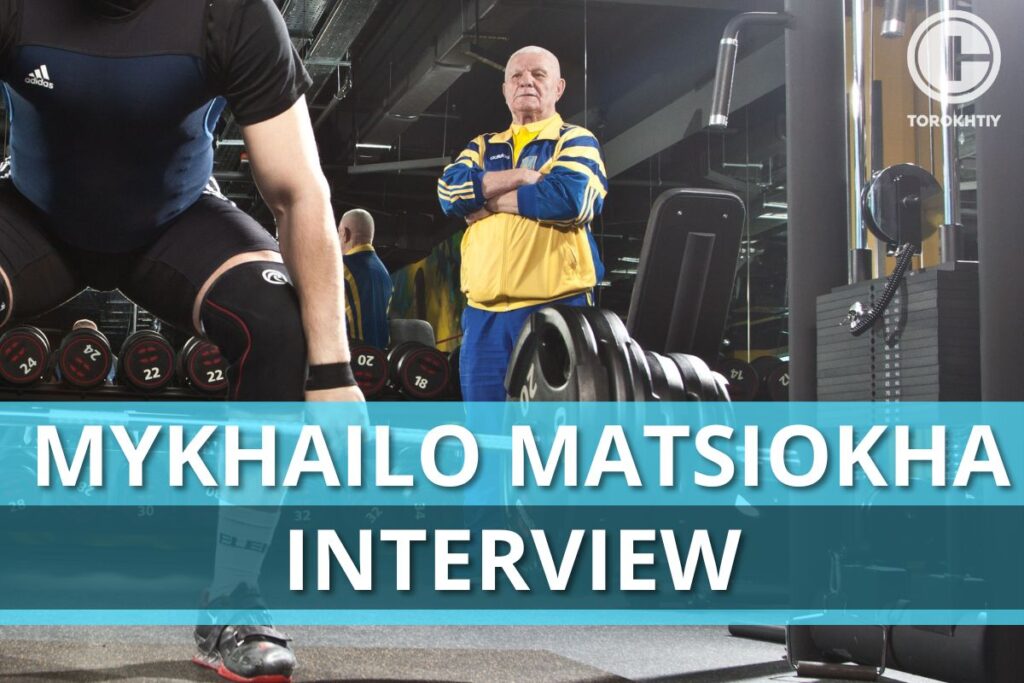
Tell us, please, how you have become a trainer.
I graduated from the Kyiv National University on Physical Education and was engaged in many sports. For example, in the army – I did wrestling, boxing, weightlifting, even hammer throw when I was young. My best results in weightlifting were: press – 137.5 kg; snatch – 115 kg and jerk – 150 kg in the 75 kg body weight class. After the army, I worked at the factory for a while. Since 1970 I started working as a weightlifting trainer and have been working as a trainer for almost 50 years.
What did the trainer’s job look like in those days?
When I started working as a trainer, there was no normal weightlifting gym in the city: it was a 10 by 10 meters room, without water and heating, and in winter there was a small stove next to each platform. Two hours before training I came to light them and warm up the room. The bars were rusty, the plates were metal – and we trained. In those years it was difficult to recruit boys on weightlifting: mainly they all began to train after service in the army. Now it is hard to imagine, but it was common in the past. 60-80 guys used to come to training. I examined them and chose more talented, but I left all of them to train – I couldn’t offend and push out the athlete if he wanted to train. I often gave high-speed exercises, looked at the team and managed to understand who had a perspective. The selection of the strongest happened over time by itself.
What does talent mean in weightlifting?
We’re constantly looking for talented athletes. The most important qualities for me are mobility and speed. When I “examine” a beginner, I give him a PVC, ask to perform a high-speed element without preparation and explanation – and look at how he will manage. Of course, most of them perform clumsy, but it is okay. It’s important for me to see the overall picture. It is similarly with flexibility and mobility, and if he is also physically strong, it is just great.
In your life, you saw a lot of different athletes. Do you remember the day where and when you met Timur Taymazov? When did this story start?
For the first time, I saw Timur at competitions when he lifted in the 90 kg category: 107,5 kg in a snatch and 127,5 in a jerk. He didn’t impress me with his result, but I liked his speed and the way he performed. I came to him and offered to train him. Approximately in seven months, there were competitions in Zaporizhia.
I say, “How many kg for the first attempt?”
Timur, “Snatch – 145 kg, Clean & Jerk – 175 kg.”
I said surprisingly, “But you have never lifted 145 kg!”
He answered, “It’s ok, I believe in myself!”
I thought then, “Well, I will check what weightlifter you are!”
He set up 145 kg. The first time he did not snatch, the second time he did not… and the third time he snatched. I guess, he is a weightlifter!
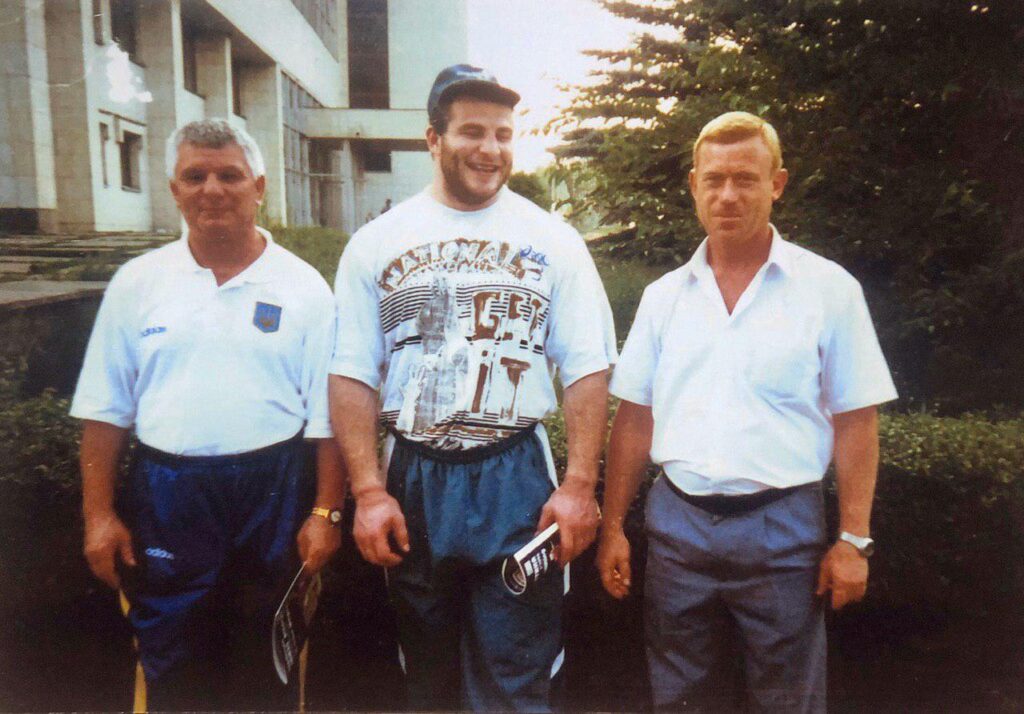
I liked his attitude to training and he really progressed quickly in the result. A year later he has won the USSR Junior Championship (170/210) and we were invited by Vasily Alekseyev himself to the USSR national team. It was a fantastic experience for me to work and learn from such a trainer. At that time, there was a chance to get into the Olympic team (Barcelona, 1992), but we had to show the good results at selection competitions. We also had a “weightlifter’s test”: during warm-up, Timur didn’t jerk 200 kg, but when he came to a platform, he jerked 225 kg. That’s when I finally believed in him. In Barcelona, he snatched 185 kg, jerked 217,5 kg and won the first Olympic medal – silver one. I had many stories with Timur: one can write a book about every training.
How did Timur manage never to lift much at training, except for competitions?
Dima Chumak does the same… Before the European Championship 2019, we trained in Georgia. He actually 190 jerked and snatched 170 times, and started around 173 kg in a snatch and 210 kg in a jerk.
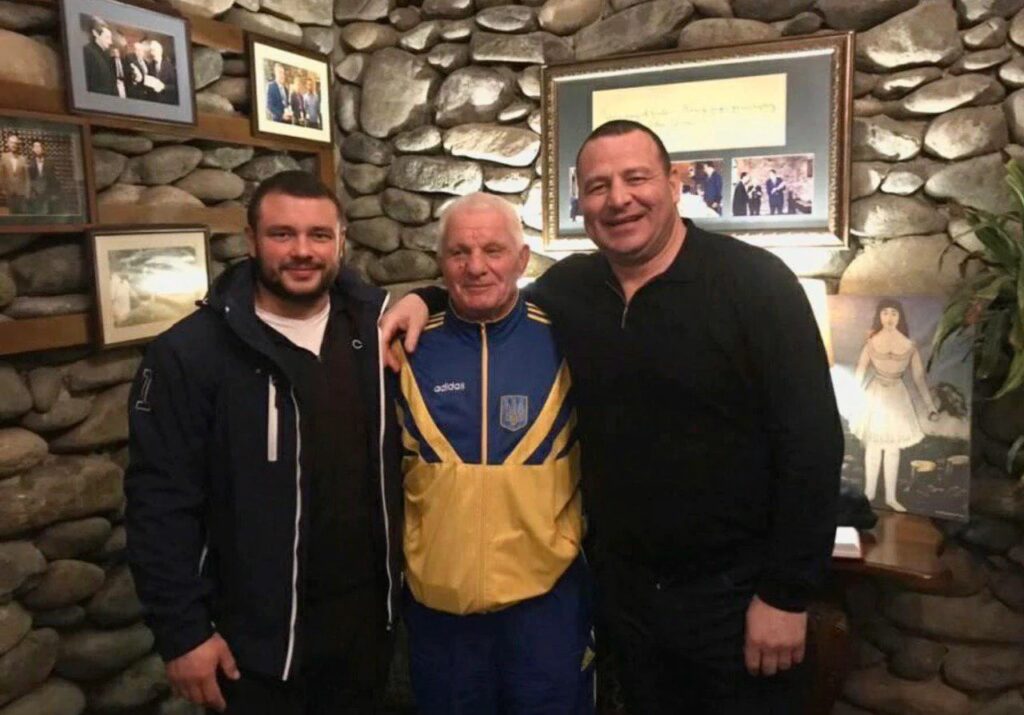
Is it necessary to work out a qualitative base for this?
I believe that it is necessary to work good on 70-85% in the preparatory period.
Did you always use this method of training or it came later?
No, I did not. I learned a lot during the years of working with different athletes. All the time I wrote plans and made something up myself. It is important that all muscles of the athlete are strong and prepared – then there will be a result. The USSR national team has taught me this. Timur Taymazov was for me like weather: sometimes laughing, sometimes crying, sometimes screaming.
Was he unbalanced?
Yes, he was. He could not learn to clean for a long time. He already snatched 160, 170 kg, but could not Clean and Jerk good. At the next training, he can’t to clean again and begins to scream at me, ‘What is wrong?’ I even told him, ‘Well, if you don’t believe me – work with another trainer.’ After he cried and screamed out enough, we began to analyze and select exercises. This way we went to victories.
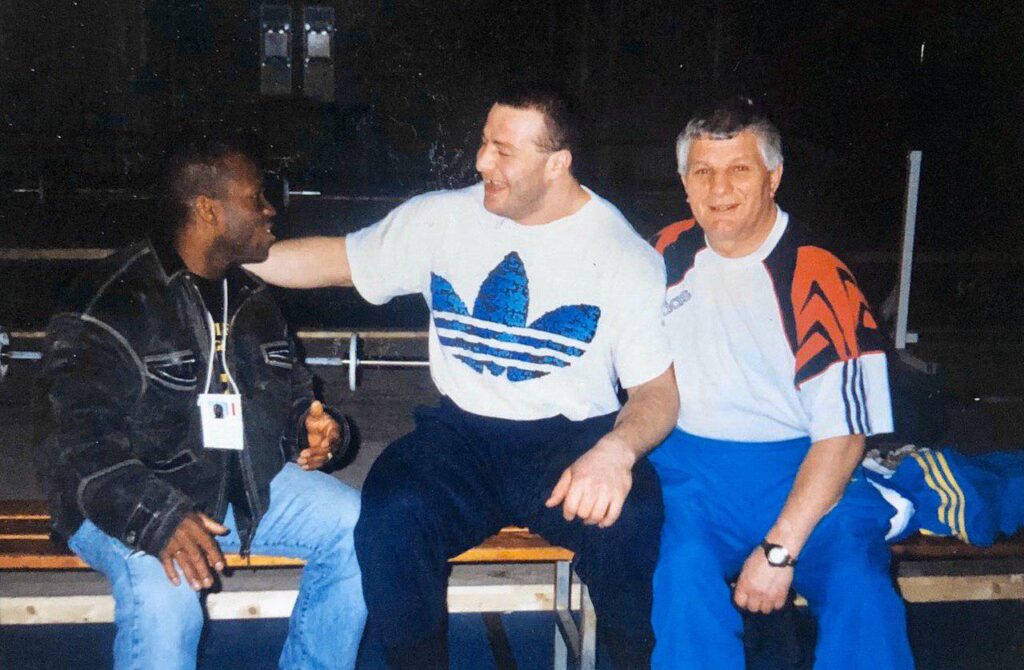
Everyone advises making strong legs. How much do you have to develop the strength of your legs, indefinitely?
I always planned with Taymazov the squats in the range of 230-250 kg. One day Timur asked me before the Atlanta Olympics, “Can I try to squat to the maximum?” We put 280 kg – and he squatted 8 reps. That time he cleaned 250 kg and was ready to jerk 245 kg. So, he could do more, but I never overload the legs with a lot of reps and sets. I consider it is wrong to squat before snatch or clean & jerk. If the muscles of the legs respond well to the load, I give a plan of back squats 3-1: one set on 3 reps, the next on 1 and so to the maximum. Dima Chumak squatted to 300 kg according to this plan. When jerk was in the program, I gave the back squats, and when snatch was, gave front squats. It seems to me that the strongest physically of all my students is and will be Denys Hotfrid. He had no limit of strength at all, he made front squats 300 kg for 3 times.
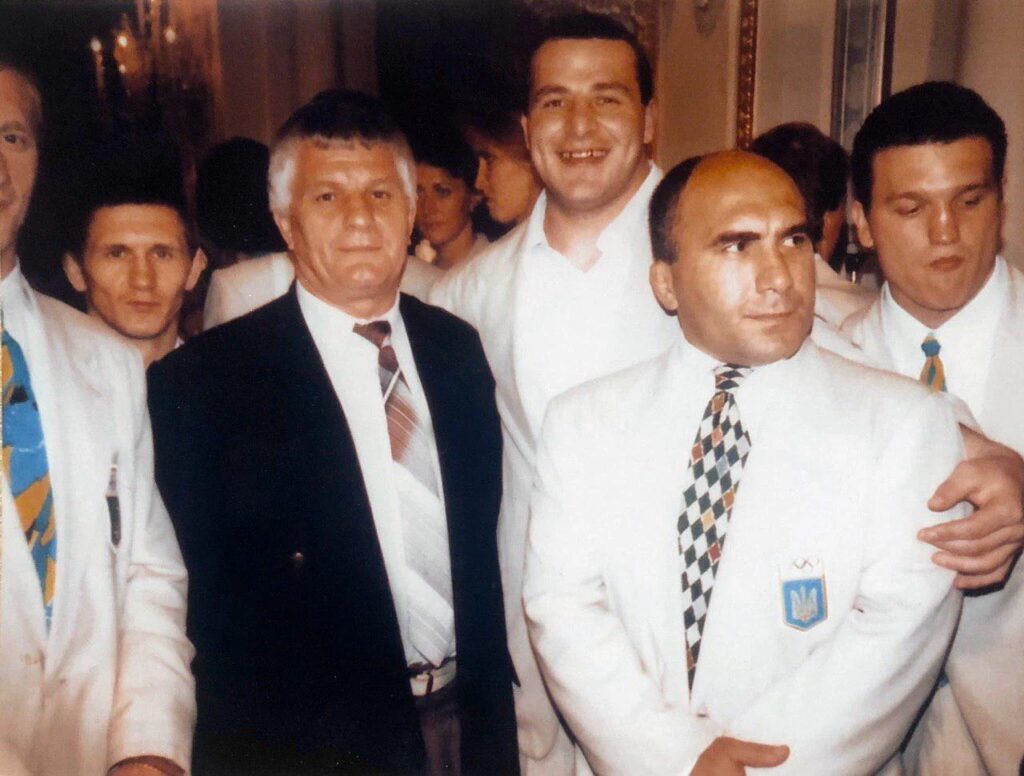
How to build training plan in pulls? The clean pull and snatch pull are different exercises, aren’t they? Do you train it differently?
Of course. I pay attention on athlete’s conditions. For example, I gave Timur a clean pull in the range of 240-260 kg.
From the platform or from one block?
Both. I have refused from the blocks already 30 years ago. I do not consider this method is effective. There are such athletes who snatch from the blocks indefinitely but can’t do that from the platform.
There is an opinion that snatch pull should always be light and high-speed. What do you think about that?
I often give athletes a high snatch pull with a weight of 60-80% to open up an athlete. During the preparatory period, a slow pull gives a very good result (10-20 seconds, 80-105%) – this is a very difficult exercise. But I rarely give heavy pulls.
On toes or on a full foot?
On a full foot. I can’t explain it scientific correctly: it is not necessary to stand on toes, but the heel can tear off at the expense of powerful snatch in pull.
You have a unique experience with elite athletes. You trained and taught them. What did they teach you?
They made me think. I couldn’t come to training without a plan. I told them why I did this or that, and they listened to me and did. I really liked Aleksey Torokhtiy. I’ll tell you a little bit about him. We started working in 2 years before the London Olympics. Aleksey offered to plan the training program independently, I agreed, but always looked it through and adjusted if it was necessary. I immediately noticed how persistent he was. And I realized that with this perseverance he would be able to become the Olympic champion.
What about Pielieshenko?
Pielieshenko was a very capable guy and athlete, physically and psychologically. When we trained with him for the Olympic Games in Rio, he jerked 220 kg and snatched 180 for a double. It seems to me he could become the three-time Olympic champion.
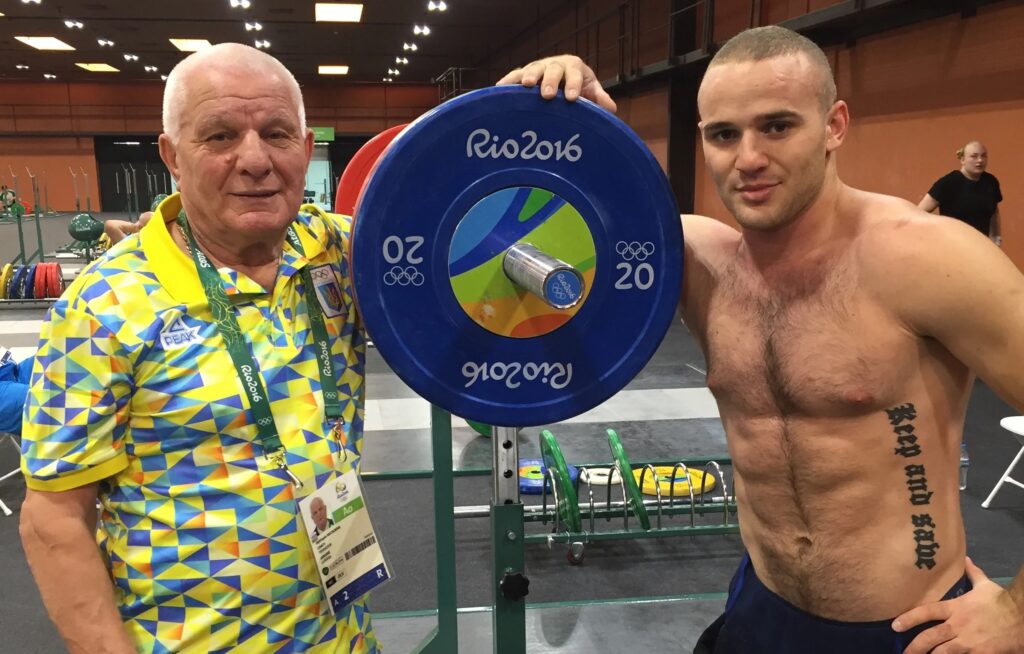
All my athletes were always very helped by the sports club Epicentre and the family Gerega – Alexander and Galina. I believe that these people have done a lot for the development of weightlifting in Ukraine. Thank them so much for that!
Give advice, please, to athletes to be successful in weightlifting. What to pay attention to? Who to listen to, what to do?
First of all, it is necessary to listen to the trainer. The daily regime, training, and nutrition routine are the most important. If the athlete is clever, but his only thoughts will be ‘how to go for a walk and drink’ – nothing outstanding will come out of it! Yeah, I had guys like that. I was hoping that they could change and be better… but, alas. Discipline is the main thing!
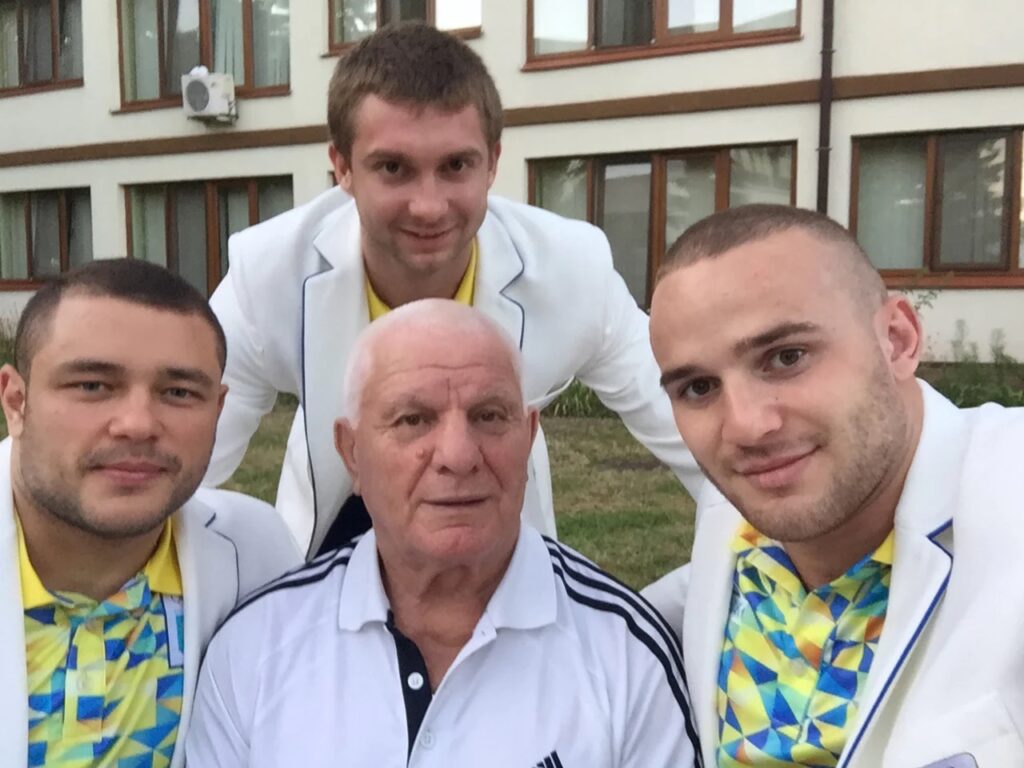
What are your recommendations for trainers? After all, you have so much trainer’s experience.
Trainers should NOT be theorists, but practitioners. It is important to speak one language with athletes, be able to explain and show how right and how wrong and why. But words aren’t enough, it is important to choose exercises that will help to remove the mistake.
You talk about everyday training. But how to learn to train for the future?
I have no idea about it. I trained both beginners and top athletes, and still I don’t know. There is no recipe.
You have been working as a trainer for 50 years working and still don’t know? And do you also continue to study?
And I continue to study! As in each athlete I see something new… what is not written in the books.
You might be interested in:
🔻Find Your Best Training: Take Our Quiz!
Are you ready to learn and grow? Take our simple quiz to discover the right training program for you. Let us help you succeed — click below to start the quiz!
Why Trust Us?
With over 20 years in Olympic weightlifting, strength training, nutrition coaching, and general fitness our team does its best to provide the audience with ultimate support and meet the needs and requirements of advanced athletes and professional lifters, as well as people who strive to open new opportunities and develop their physical capabilities with us.
By trusting the recommendations of our certified experts in coaching, nutrition, and sports training programming, as well as scientific consultants, and physiotherapists, we provide you with thorough, well-considered, and scientifically proven content. All the information given in the articles concerning workout programming, separate exercises, and athletic performance, in general, is based on verified data.
The product testing process is described in more detail here.
Author: Sergii Putsov
Head of Sport Science, PhD
Best Results: Snatch – 165 kg,
C&J – 200 kg
Sergii Putsov, Ph.D., is a former professional weightlifter and National team member, achieving multiple medals in the 94 kg weight category at national competitions. With a Master’s degree in “Olympic & Professional Sport Training” and a Sport Science Ph.D. from the International Olympic Academy, Greece, Sergii now leads as the Head of Sport Science. He specializes in designing training programs, writing insightful blog articles, providing live commentary at international weightlifting events, and conducting educational seminars worldwide alongside Olympic weightlifting expert Oleksiy Torokhtiy.



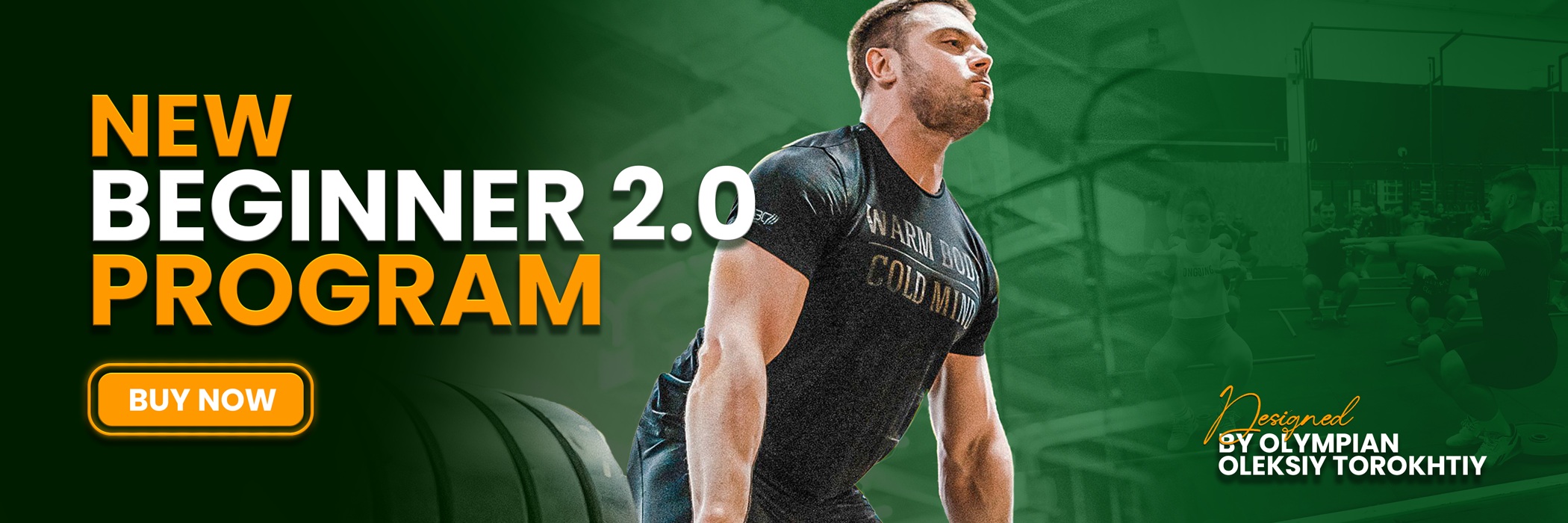
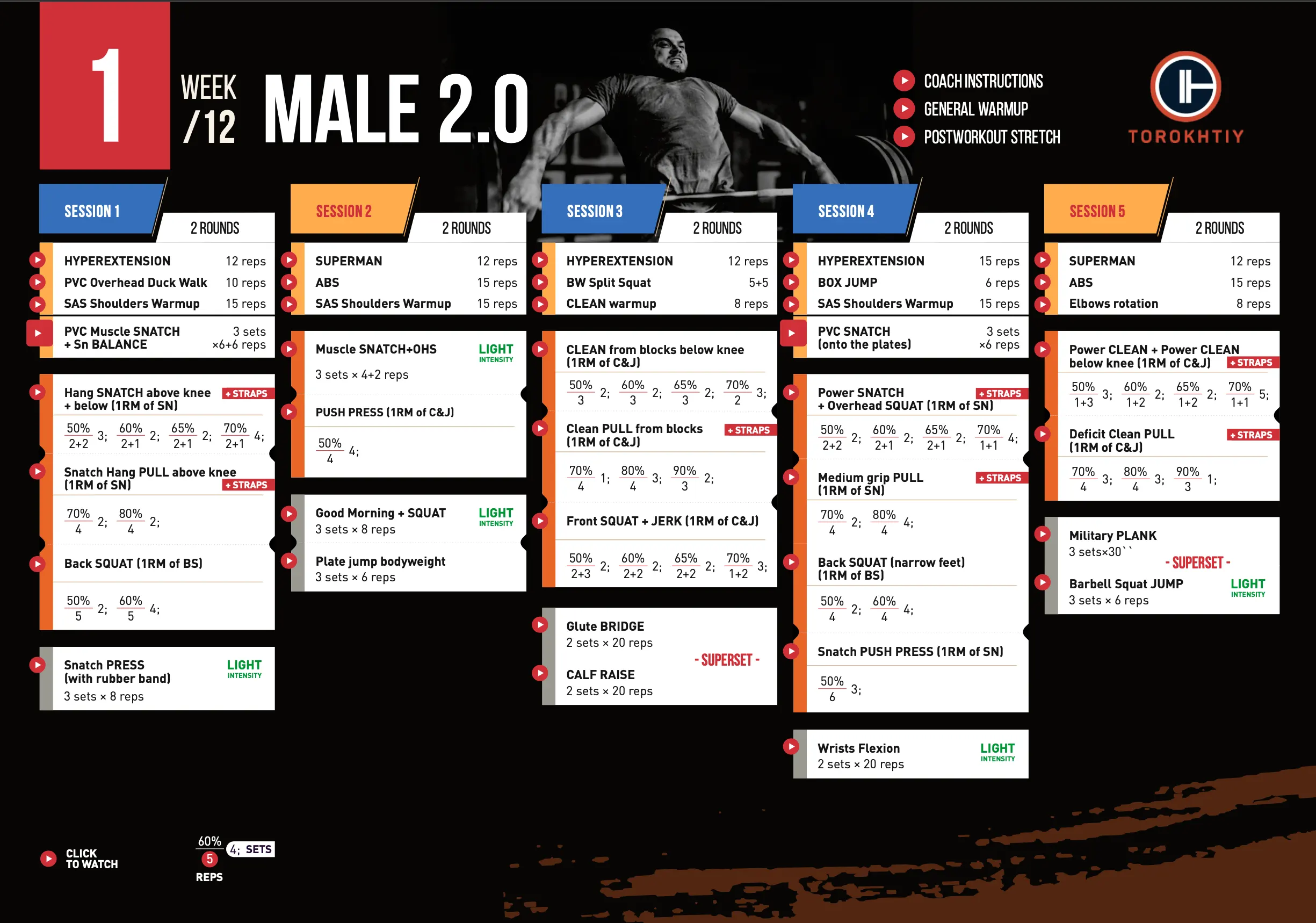
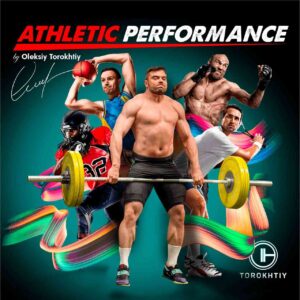
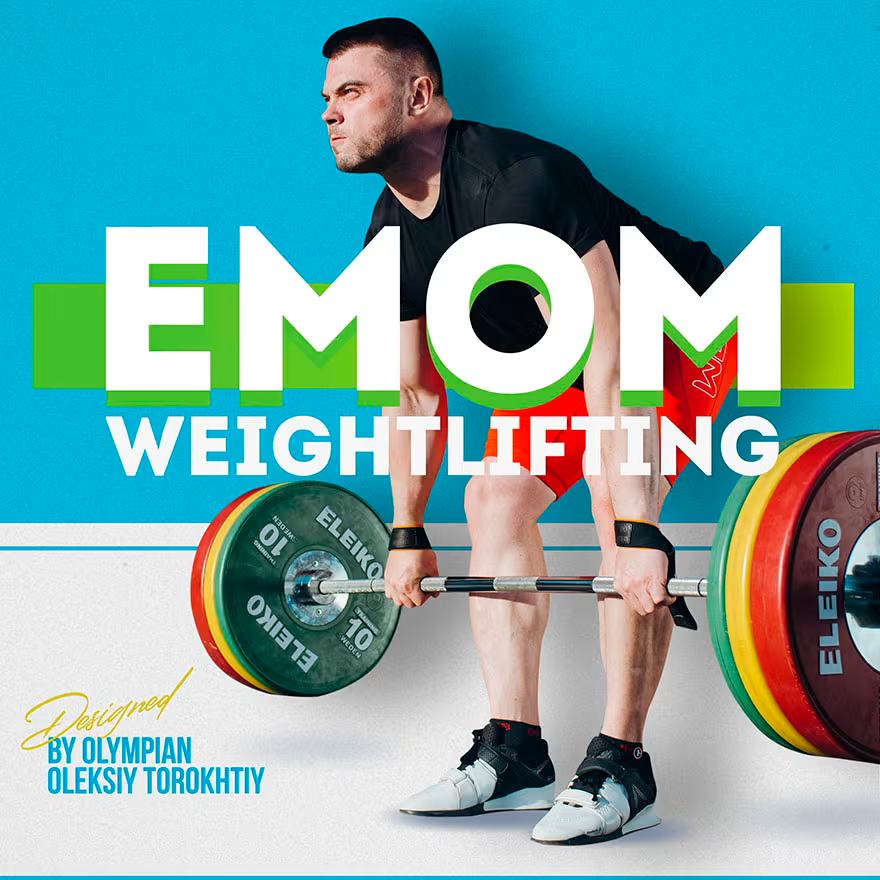
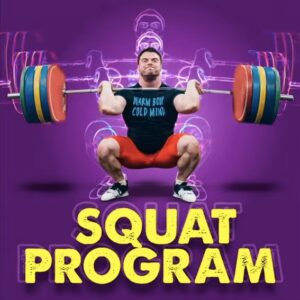
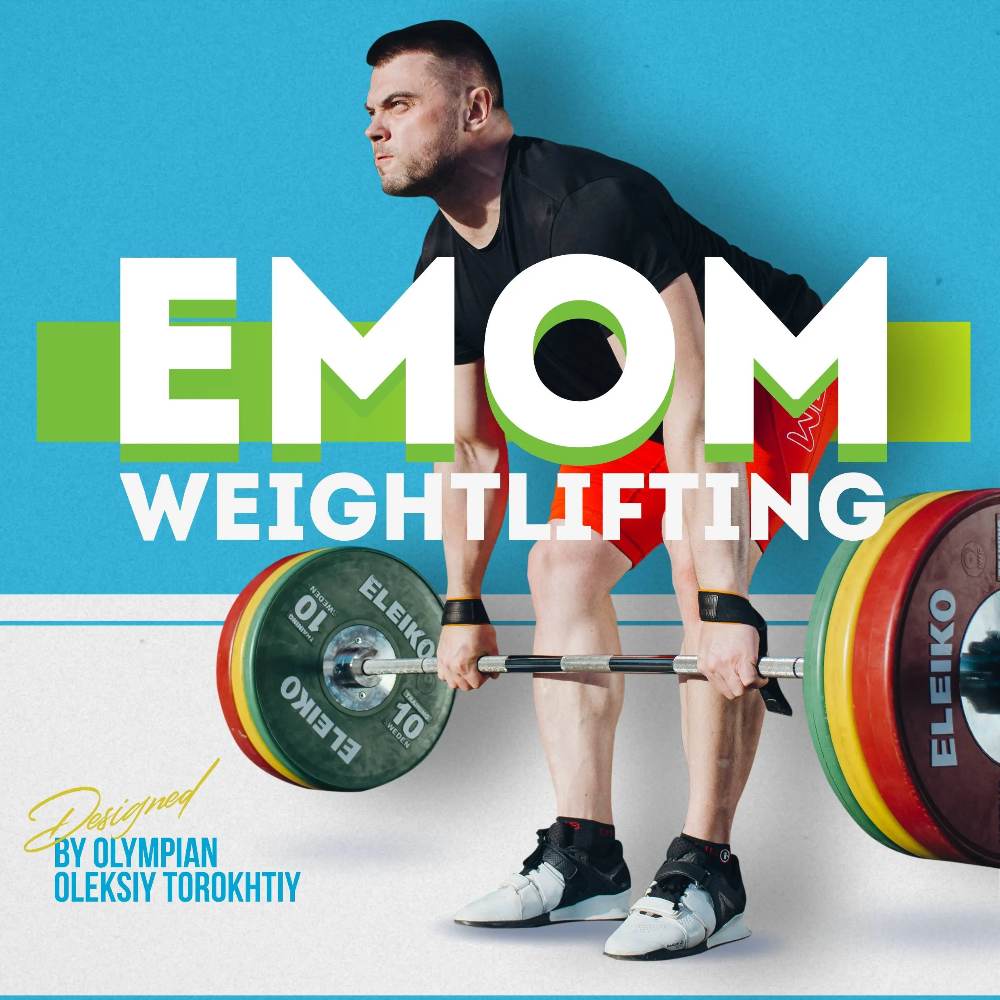
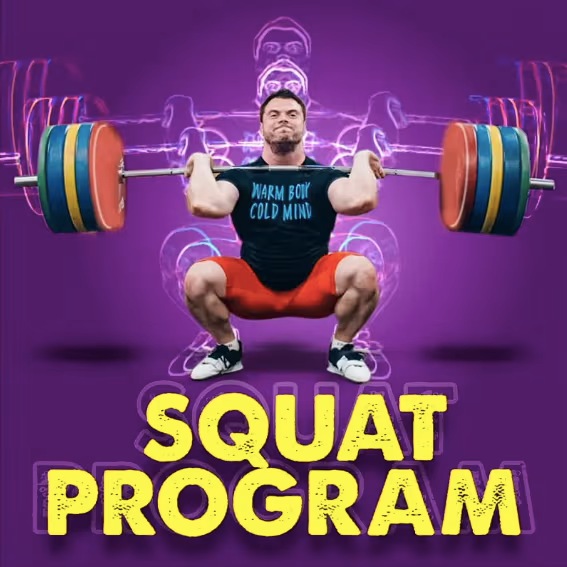
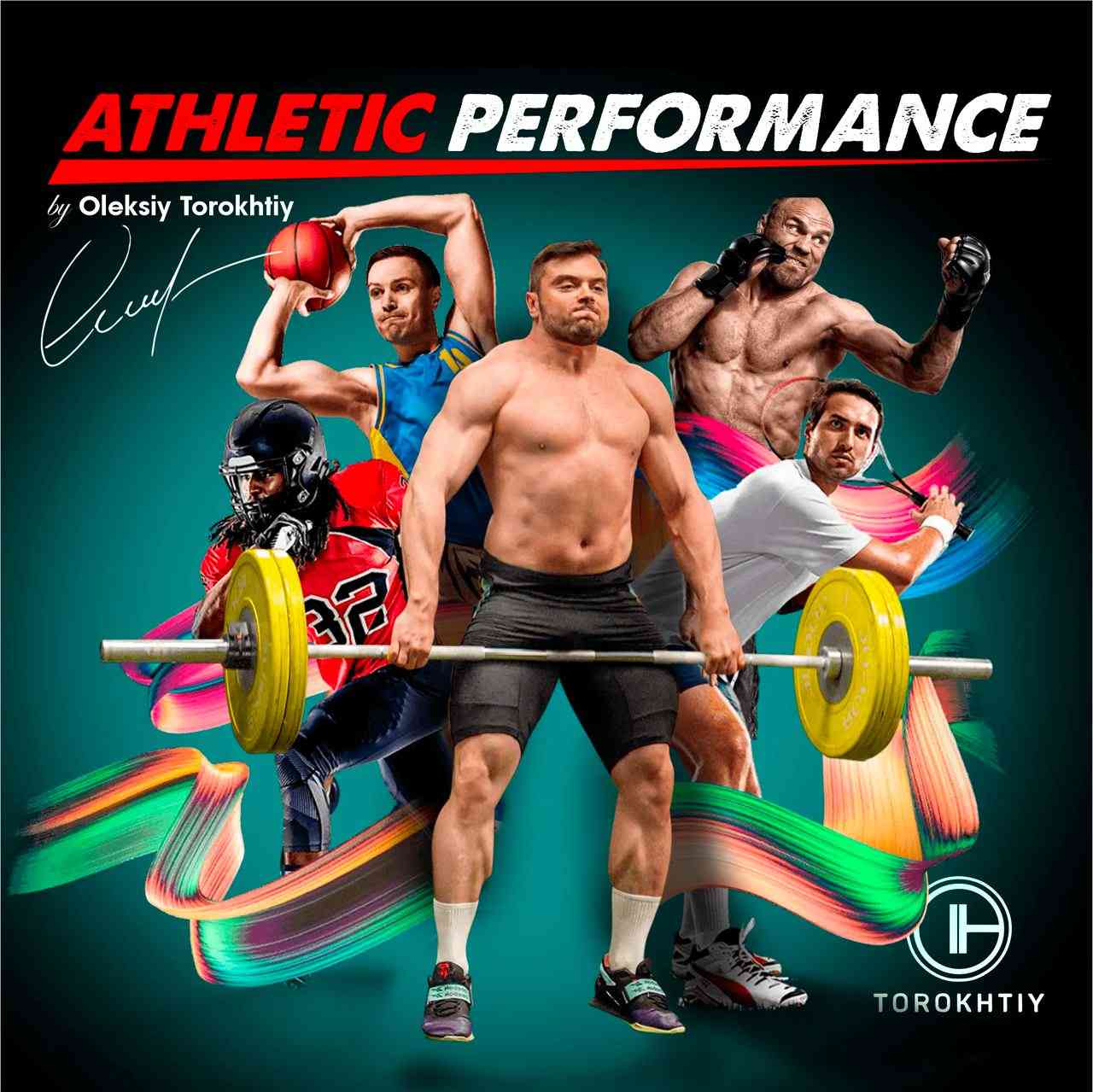
Still have questions after reading our article? Unlock your full potential by engaging with our experts and community! Don’t hesitate — leave a comment below and Sergii Putsov will provide a personalized answer and insights to help you reach your goals.